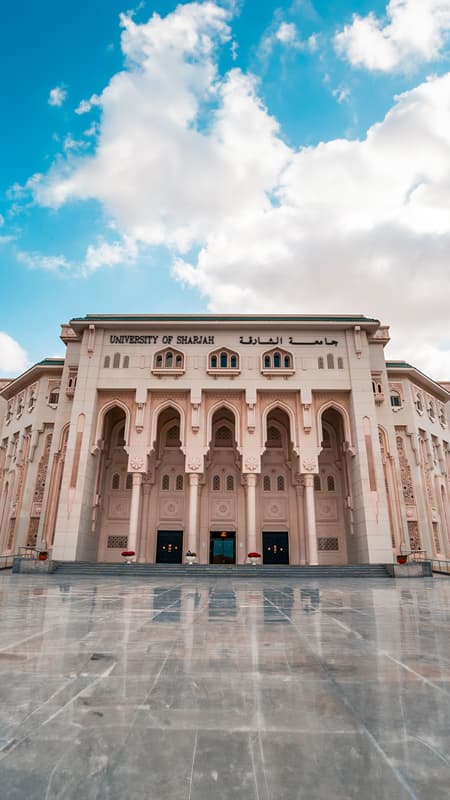The University of Sharjah Awards Khawla Al Mulla A PhD Degree for Her Modernization and Distributive Justice in the Emirate of Sharjah Dissertation
The College of Arts, Humanities and Social Sciences at the University of Sharjah awarded Khawla Al Mulla, Secretary General of the Supreme Council for Family Affairs (SCFA), a PhD degree in Applied Sociology specializing in development policies. This is after a session discussing the thesis presented by the researcher under the title "Modernization and Distributive Justice in the Emirate of Sharjah: A Comparative Study Using the Comprehensive Survey of the Results of Sharjah Census 2015 "through video communication technology.
Prof. Hamid M.K. Al Naimiy, Chancellor of the University of Sharjah, attended the session and congratulated and commended the efforts of the researcher for obtaining her PhD with distinction and wished her success in her working life. He noted the importance of the subject of the thesis and its role in serving the Emirate of Sharjah and the United Arab Emirates in general. The Chancellor also recommended that the researcher begin immediately to publish that study in the form of a book, then he thanked the members of the supervisory committee for enriching the researcher with their scientific expertise, and also thanked the examining and discussion committee for their cooperation in discussing that project.
The Supervision Committee consisted of Prof. Hussein Al-Othman, Dean of the College of Arts, Humanities and Social Sciences, the main supervisor of the thesis, and Dr. Muhammad Abdul Karim Al-Hourani, the assistant supervisor. The discussion and examining committee consisted of Dr. Khalil Abdullah Al-Madani, Chair of the Committee; Prof. Saeed Amin Nassef, external examiner; and Dr. Saleh Samir Al-Dulaimi, internal examiner.
The thesis focused on a research study on the demographic, social, and economic characteristics of the population of the Emirate of Sharjah as indicators of modernization processes in the Emirate, and the relationship between some of these characteristics on the one hand and the geographical area and gender on the other hand as indicators of distributive justice in the Emirate. The study was done by analyzing the results of the Sharjah Census of Population Year 2015.
The results of the statistical analysis revealed that the planned social change programs in the Emirate of Sharjah in the past six decades have contributed to reaching achievements and indicators for modernization. This is by bringing about a change in the demographic, social and economic characteristics of citizens such as: high level of education, low illiteracy rate for citizens, citizens enjoy high incomes, and the high percentage of citizens' ownership of housing, empowering minority groups in society, such as orphans, the elderly and people with disabilities. The results of the statistical analysis revealed a variation in the indicators of modernization, such as: the educational level, the employment situation, the possession of housing, the social empowerment of minority groups in society, unemployment by gender and geographical region. The results of the study revealed a variation in the income update index according to the geographical region, as well as an increase in the percentage of home ownership for the benefit of women compared to men, and almost equal income between men and women, to promote the concept of a welfare country.

